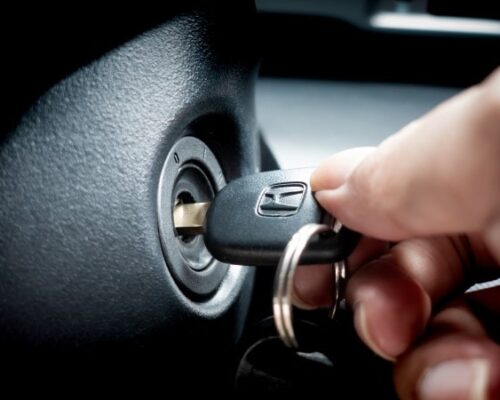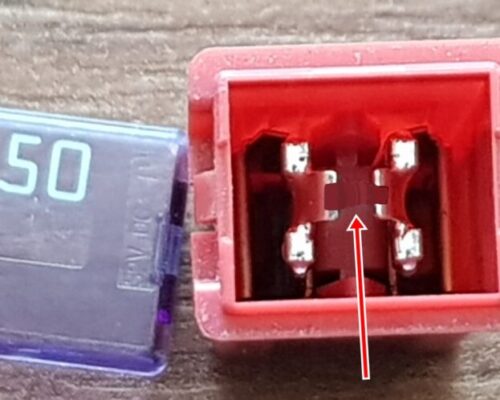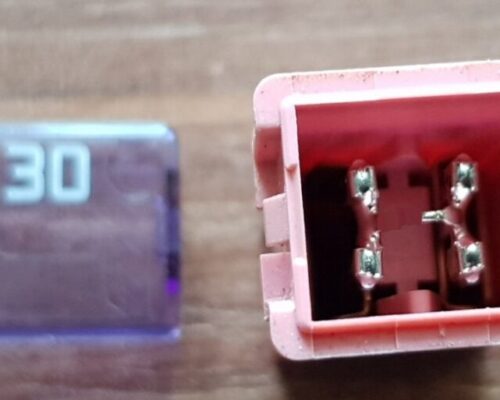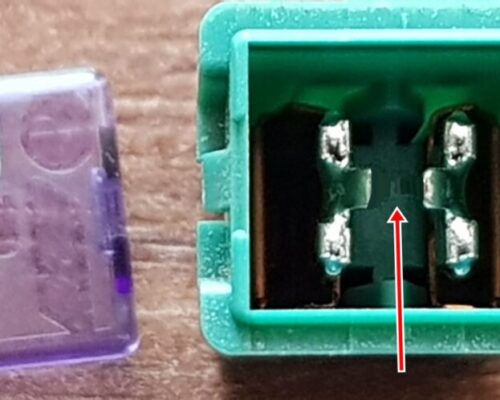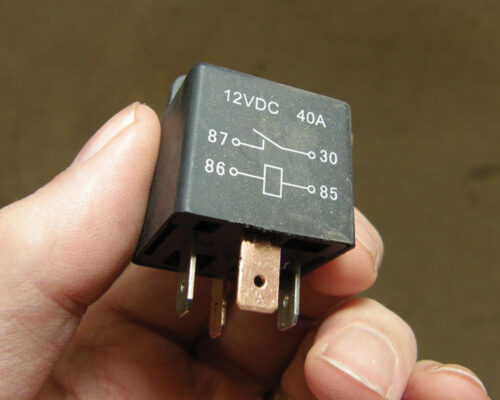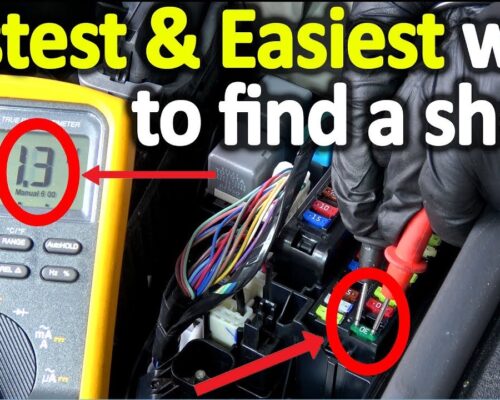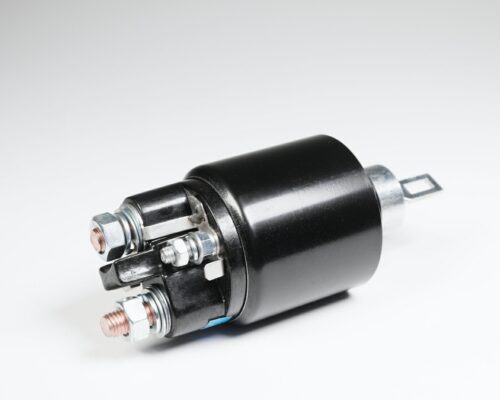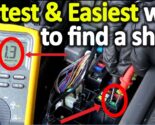
Symptoms Of A Bad Ecu – Explored
If your car’s ECU is going bad, there are a few different symptoms that you might notice. The first and most obvious symptom is that the check engine light will come on. This can be accompanied by a range of other warning lights, depending on the make and model of your vehicle.
Other signs that something is wrong with your ECU include strange or erratic behavior from your car, like sudden acceleration or deceleration, stalling, or unexpected changes in speed or power. You might also notice that your fuel economy has decreased significantly. If you’re experiencing any of these issues, it’s important to get your car checked out by a mechanic as soon as possible to see if the ECU is indeed the problem.
If your car isn’t running as smoothly as it should be, there’s a chance that the ECU is to blame. The ECU, or electronic control unit, is responsible for managing the engine and making sure it runs properly. If something goes wrong with the ECU, it can cause all sorts of problems with your car.
Here are some common symptoms of a bad ECU:
1. Check Engine Light Is On
One of the most obvious signs that something is wrong with your ECU is if the check engine light comes on.
This means that there is a problem with one or more of the sensors that the ECU uses to monitor the engine. If you see this light, it’s important to take your car to a mechanic so they can diagnose and fix the problem.
2. Car Won’t Start
Another common symptom of a bad ECU is if your car won’t start at all. In some cases, you may hear clicking when you turn the key but the engine won’t actually turn over. This usually happens because there’s an issue with the way that information is being sent from the ECU to other parts of the starting system.
As a result, no spark is generated and the engine won’t start.
3. Stalling or Hesitation
If your car starts but then stalls soon after or hesitates while driving, this could also be due to an issue with the ECU.
When information isn’t being properly sent fromthe ECUto other parts ofthe engine,it can causethe engineto misfire or hesitate which leadsto stallingor hesitationwhile driving .This issuper dangerousandshould be fixedimmediatelybya mechanic .
4 .
Rough Idle
Another symptomofa badEC Uis ifyou noticeyour carexperiencinga rou ghid le .Thismeansthatthe enginesounds choppyor unevenwhen it’s idlingand canbe causedby acoupleof different things ,oneof whichis an issuewiththeEC U .WheninformationfromtheEC U isn ‘tbeingproperlyprocessedit canresultin aroughidleas wellasotherissueslikemisfiringorthesame stallingandhesitationmentionedbefore .
5 . Sudden Power Loss
Ifyou’redrivingalongandsuddenly loseallpowerinyourcar ,this couldmeanthatthe E CUhas failedcompletely .
SYMPTOMS OF A BAD ECM (ENGINE CONTROL MODULE)
How Do I Know If My Car’S Ecu is Bad?
If your car’s ECU is bad, there are a few things that you will notice. First, the check engine light will likely be illuminated on your dash. Second, your car may run rough or stall completely.
Third, you may notice reduced fuel efficiency. Finally, your car may have trouble starting. If you notice any of these symptoms, it’s important to take your car to a mechanic to have it diagnosed.
They can then determine if the ECU is the root of the problem and replace it if necessary.
How Do You Diagnose an Ecu?
If your car’s check engine light is on, there’s a good chance that the issue is with the ECU. But how do you diagnose an ECU? Here’s a quick guide:
First, check for any obvious signs of damage to the ECU. If it looks like it has been damaged in any way, then it will need to be replaced.
Next, take a look at the ECU’s code.
This can usually be found by looking in the owner’s manual or contacting the manufacturer. The code will tell you what specific issues the ECU is having.
Once you have the code, take your car to a mechanic and have them hook it up to a diagnostic machine.
This will help pinpoint the exact problem with the ECU.
Finally, if all else fails, you may need to replace the ECU entirely. However, this should only be done as a last resort as it can be quite expensive.
What is the Most Common Failure of an Ecm?
The most common failure of an ECM is due to a faulty or damaged control module. The control module is the heart of the ECM and controls all the functions of the engine management system. If the control module fails, then the whole system will fail to work properly.
Other common failures include sensors and actuators that are not working correctly, and wiring that has been damaged or corroded.
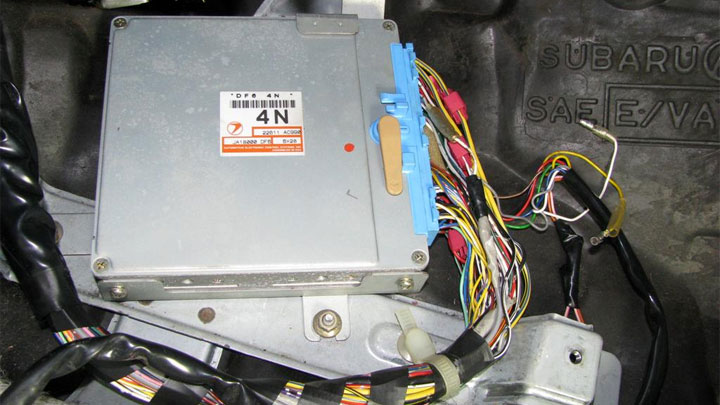
Credit: cartreatments.com
Bad Ecu Ground Symptoms
If your car has bad ecu ground symptoms, it may be difficult to start the engine, or the engine may stall. The check engine light may also come on. These symptoms can be caused by a number of things, but most likely it is due to a problem with the ground connection to the ECU.
The ECU needs a good ground connection in order to function properly. If there is any corrosion or other damage to the ground connection, it can cause problems with the ECU. In some cases, simply cleaning the ground connection will fix the problem.
However, if the damage is more severe, you may need to replace the entire ECU.
Symptoms of a Bad Ecm Relay
If your car has been acting up lately and you’re not sure what the problem is, it could be a bad ECM relay. Here are some symptoms of a bad ECM relay that you should be on the lookout for:
1) Your car won’t start.
This is probably the most obvious symptom of a bad ECM relay. If your car won’t start, it could be because the relay is not sending power to the engine control module (ECM).
2) Your check engine light is on.
Another symptom of a bad ECM relay is if your check engine light comes on. This means that there is a problem with the way the ECM is communicating with other parts of your car.
3) Your car stalls or hesitates when you try to accelerate.
If you notice that your car stalls or hesitates when you try to accelerate, it could be because the ECM isn’t getting enough power from the relay.
4) Your fuel economy decreases.Bad relays can also cause your fuel economy to decrease because they aren’t allowing the ECM to properly regulate fuel injection.
What are the Symptoms of a Bad Engine Control Module
If your engine control module is failing, you may experience any of the following symptoms:
1. Your engine will run erratically. This can manifest itself as a loss of power, sputtering or stalling.
2. Your check engine light will come on, and you may get an error code related to the ECM.
3. Your fuel economy will decrease as your engine runs less efficiently.
4. You may have difficulty starting your car or it may stall soon after starting.
How Do You Test If Your Ecm is Bad
If your car is having trouble starting, stalling, or running rough, it could be a sign that your ECM is going bad. Here’s how you can test if your ECM is bad:
1. Check for engine codes.
If your ECM is failing, it will often trigger an error code. You can check for these codes by using a code reader or scanner.
2. Inspect the ECM itself.
If the ECM is damaged or has any obvious signs of wear and tear, it may need to be replaced.
3. Have a professional test the ECM. This is the best way to know for sure if your ECM is failing and needs to be replaced.
How to Repair a Faulty Ecu
If your ECU has failed, it can be a daunting task to try and repair it yourself. Here are some tips on how to repair a faulty ECU:
1. Firstly, you will need to identify the problem with your ECU.
This can be done by using a diagnostic tool such as an OBD reader.
2. Once you have identified the problem, you will need to find the cause of the issue. This could be due to a number of factors such as a faulty sensor or wire.
3. Once you have found the cause of the problem, you can then start to look at repairing the ECU itself. This will involve opening up the unit and making sure that all of the connections are secure and free from corrosion.
4. Once you have repaired the ECU, it is important to test it before reinstalling it into your vehicle.
This can be done by using a simulator or test bench.
Ecu Failure Causes
An ECU, or engine control unit, is a type of electronic control unit that regulates a variety of engine parameters in order to ensure optimal engine performance. However, like any other piece of electronic equipment, ECUs can and do fail. When an ECU fails, it can cause a number of problems with your engine, ranging from decreased performance to complete engine failure.
There are a number of different reasons why an ECU might fail. One possibility is physical damage to the unit itself. This could be due to something as simple as a loose connection or bad solder joint, or it could be due to more serious physical damage such as water damage or fire damage.
Another possibility is that the software that controls the ECU has become corrupted. This can happen if the wrong software is flashed onto the unit, if the software becomes infected with a virus, or if there is some sort of hardware error that causes the software to become corrupt.
Finally, it’s also possible for an ECU to simply wear out over time.
As components age and degrade, they eventually reach a point where they can no longer function properly. This is particularly true for electrolytic capacitors, which are used in many electronic devices including ECUs. When these capacitors fail, it can cause all sorts of problems with the way the ECU functions.
If your ECU has failed, it’s important to have it repaired or replaced as soon as possible so that your engine will continue to run properly. If you’re not sure what’s causing the problem, take your car to a qualified mechanic or dealership service department and they should be able to diagnose and repair the issue quickly and easily.
How to Fix Ecm Failure
If your car’s ECM has failed, there are a few things you can do to try and fix the problem. First, check all the fuses and make sure they are all intact. Next, check the ECM’s power supply and ground wires to make sure they are getting power.
If everything looks good there, then the problem may be with the ECM itself and you will need to replace it.
Water Damaged Ecu Symptoms
If your car has been involved in a flood or you think it may have sustained water damage, there are several things you can look for to see if the ECU (engine control unit) is affected. Here are some common water damaged ECU symptoms:
1. The car won’t start.
This is perhaps the most obvious sign that something is wrong with your car’s electrical system. If the engine won’t turn over, it’s likely because water has gotten into the ECU and shorted it out.
2. The engine starts but stalls soon after.
If your car starts but then stalls shortly thereafter, this could be a sign that water has damaged the ECU’s ability to properly regulate fuel and ignition timing.
3. The check engine light is on. A illuminated check engine light usually indicates a problem with the emission control system, but it could also be caused by a water-damaged ECU.
4. Reduced power and performance. Water damage can cause all sorts of problems with your car’s electronics, which may result in reduced power and performance from the engine overall.
Conclusion
If your car starts acting up, it might be the ECU. Here are some common symptoms of a bad ECU:
1. The car won’t start.
This is usually the first and most obvious sign that something is wrong with the ECU.
2. Check engine light is on. If the check engine light comes on, it means that there is a problem with the ECU.
3. The car stalls frequently. If your car stalls frequently, it could be because of a problem with the ECU.
4. The car has reduced power and performance.
If you notice that your car’s performance has decreased, it could be because of a problem with the ECU.


